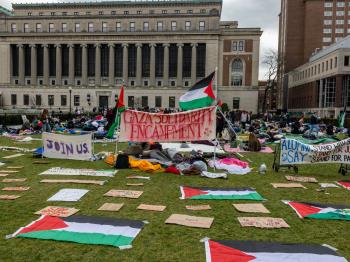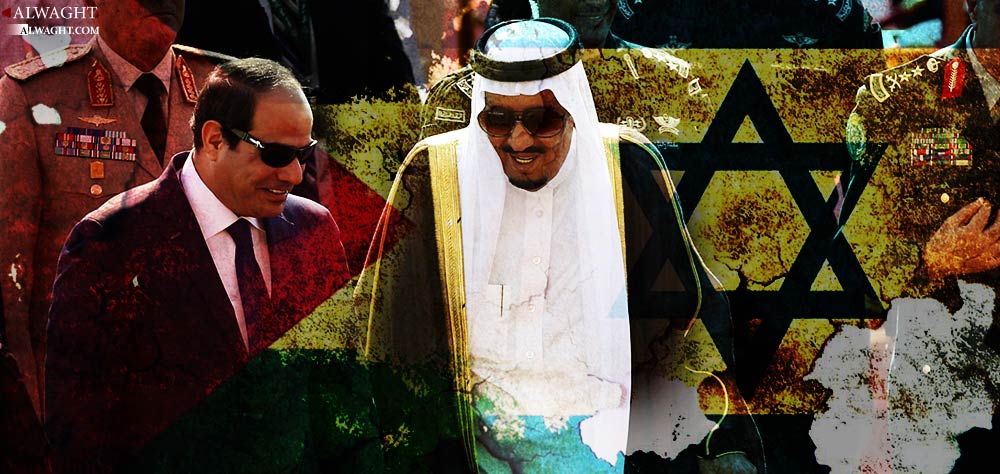Alwaght- A significant portion of interests of some Arab countries like Saudi Arabia, Egypt, and Jordan in ending the Israeli-Palestinian conflict largely lies in these states' common security, political, and economic interests with the Israeli regime. This drives these countries' leaders to imply the idea to their public that ongoing Israeli-Palestinian dispute only produces further extremism and instability in the region. They, furthermore, struggle to get the idea across that agreement not only eradicates the now-grown up regional terrorism but also will bring about an abundance of interests that can help improve the region’s conditions.
This approach is especially pursued by leaders of Cairo and Amman as they think that any escalation of tensions between the Israelis and the Palestinians will automatically stir unrest in Egypt and Jordan, which can destabilize their rule over their nations. Even more, Egypt sees de-escalation as working in best interest of its economy because Cairo will take advantage of the calm in the region to attract foreign tourism and investment.
In fact, Egypt and Saudi Arabia favor the Israeli-Palestinian peace process conclusion as they see it a tool to strengthen their leadership over the Arab world, and once this goal is achieved, it will win them a high profile as weighty actors in the eyes of the West, and particularly the US. As a first Arab state to strike peace deal with the Israeli regime and so recognize it, Egypt which played a big mediatory and coordinative role in the Israeli-Palestinian peace efforts regards its own accord with Tel Aviv, known as Camp David Accords, and mediation to broker a deal between the Israelis and the Palestinians as enhancing the Cairo image on the global stage. Riyadh, on the other side of the game, is optimistic to see adoption of the Arab peace initiative that was approved by the Saudi-led Arab bloc. If this peace initiative is agreed to be a basis for the Arab-Israeli negotiations, it will amplify the Saudi Arabian political position internationally.
In terms of security, the Arab leaders argue that any considerable progress in peace process will pave the way for joint Arab-Israeli mobilization of forces against the so-called common opponents like Iran and the salafist groups. Also peace, they imagine, can be advantageous economically, as the road will be opened for collaboration in a series of fields such as tourism, agriculture, transportation, and trade.
But the Arab states hardly restrict their vital interests only to an ultimate settlement of the long-lasting Israeli-Palestinian conflict. They have already engaged in a diplomatic normalization process with Tel Aviv, though secretly. This is especially noticeable if we look back to past few years' Arab-Israeli links. In fact, the undercover Arab-Israeli contacts even accelerated the normalization efforts by the two sides. But the Arab leaders move very cautiously at least for now, thinking that reaching a settlement for conflict can help easier and less costly revealing diplomatic ties with the Israeli regime among their public opinion.
The Egyptian journalist Monem Saeed has proposed a landscape for the future of the Arab-Israeli struggle: “fighting Israel or making peace with it, normalizing with it or boycotting it, cannot work based on the mechanism of the past two decades' realities. Rather, they should have as their basis the current Israeli, regional, Egyptian, and Arab realities, as well as the Palestinian interests. What we need is a relaxed thinking and understanding of the international relations that are shaped by a network of conflicts, competitions, and cooperation. That takes us to continuously assess the circumstances to avoid the useless war of the past.”



























